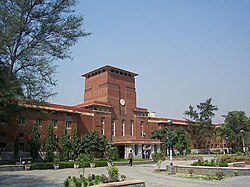Biography

Ramandeep Singh, born in New Delhi, graduated in science from the South Campus of the University of Delhi and continued his education there to earn a master's degree and later, a PhD in 2003. [2] He did his post doctoral work on research fellowship from the National Institutes of Health at the National Institute of Allergy and Infectious Diseases. Subsequently, he joined the Translational Health Science and Technology Institute as a scientist where he serves as an associate professor at the Vaccine and Infectious Disease Research Center (VIDRC) [3] and hosts a number of scientists at his laboratory. [4]